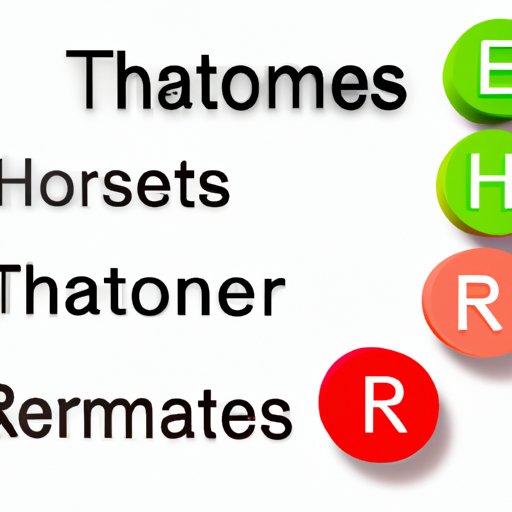
How to Balance Hormones Naturally
Hormones are chemical messengers that regulate various bodily functions, including metabolism, growth and development, and mood. When hormones are in balance, we feel energized, focused, and healthy. However, when hormones become imbalanced, it can lead to a range of symptoms, such as weight gain, mood swings, and fatigue. In this article, we’ll explore some strategies for balancing hormones naturally.
Diet and Nutrition
One of the most effective ways to balance hormones naturally is through diet and nutrition. Eating a balanced diet that includes plenty of whole foods can help regulate hormones and promote overall wellbeing. Some of the best foods for hormone regulation include:
- Leafy greens, such as spinach and kale
- Healthy fats, such as avocado and nuts
- Lean protein, such as chicken and fish
Additionally, it’s important to avoid processed foods and excessive sugar and caffeine, which can disrupt hormone balance. Consider meal planning and practicing mindful eating to support a balanced diet.
Exercise
Regular exercise is another important factor in hormone regulation. Exercise can promote the release of endorphins, which can help reduce stress and improve mood. Some of the best types of exercise for hormone regulation include:
- Strength training
- High-intensity interval training (HIIT)
- Yoga or Pilates
It’s important to establish a consistent exercise routine and prioritize movement throughout the day.
Sleep
Sleep is crucial for hormone balance, as many hormones are produced during the sleep cycle. Lack of sleep can disrupt hormone production and lead to imbalances. To support healthy sleep habits, consider:
- Establishing a consistent bedtime routine
- Minimizing screen time before bed
- Maintaining a cool and dark sleep environment
Stress Management
Stress can have a significant impact on hormone balance, as it can trigger the release of cortisol and other stress hormones. To manage stress and support hormone regulation, consider:
- Meditation or deep breathing
- Yoga or tai chi
- Engaging in enjoyable hobbies or spending time in nature
Supplements
While diet and lifestyle changes are effective for hormone regulation, some people may benefit from certain supplements. Vitex and Maca root are two examples of natural supplements that may help balance hormones. However, it’s important to discuss any supplement use with a healthcare professional, as supplements can have risks and side effects.
Hormone Replacement Therapy
In some cases, Hormone Replacement Therapy (HRT) may be necessary to balance hormones. HRT involves taking hormones to replace those that are deficient or imbalanced. However, HRT can have risks and side effects, so it’s important to discuss this option with a healthcare professional.
Avoiding Toxins
Certain toxins can disrupt hormone regulation, so it’s important to avoid them when possible. This includes using non-toxic cleaning products, avoiding plastics as much as possible, and being an informed consumer by checking labels for potential toxins.
Conclusion
Balancing hormones naturally requires a holistic approach that includes diet, exercise, sleep, stress management, and avoidance of toxins. By taking small steps towards hormone regulation, we can support overall wellbeing and prevent symptoms of hormonal imbalance. If you’re struggling with hormonal imbalances, consider working with a healthcare professional to develop a personalized plan for hormone regulation.




